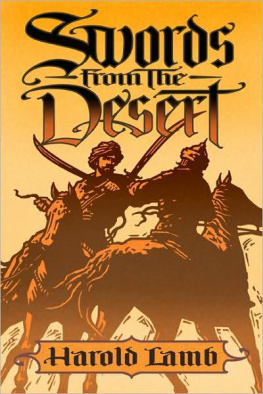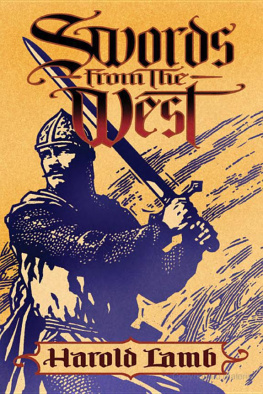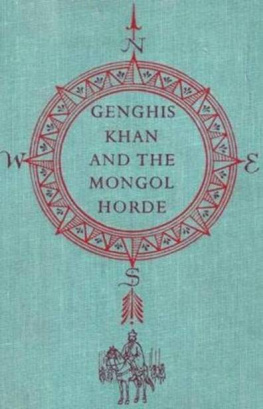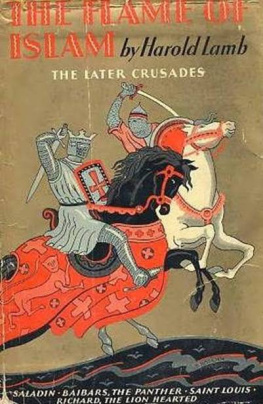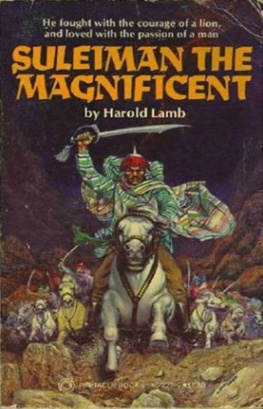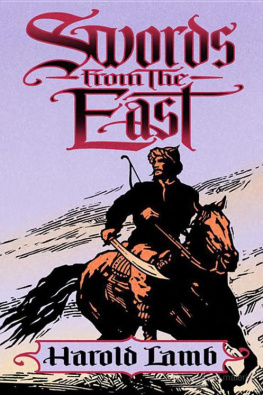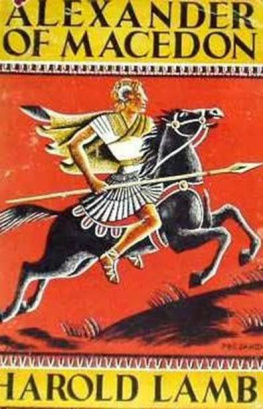







vii
xi
xiii

stories.t
A few years later Lamb returned to an Arabian narrator, Daril ibn Athir, a former swordsman turned physician. His three adventures form the jeweled center of this collection. The first two were published almost back to back; the third was published some seven months after and is apt to leave those who read the adventures in sequence scratching their heads. In "The Road to Kandahar," Daril allies himself with the stalwart Mahabat Khan, scion of Jahangir the Mogul, and the story's conclusion leaves Daril with Mahabat Khan and his Rajput allies to journey to Jahangir's stronghold. When "The Light of the Palace" opens, Daril is introduced to another Mahabat Khan, likewise a leader of Rajputs and scion of Jahangir. Daril neither knows him nor makes mention of having known someone very similar. Indeed, it seems clear that it is the same fellow and that Lamb has ignored the existence of the preceding story. As Mahabat Khan is a prominent character in both novellas, it is no mistake but a deliberate choice. No correspondence on the subject or notes on the story seem to have survived, so Lamb's reasoning remains a minor mystery.
Whatever the explanation, in "The Light of the Palace" Lamb returns to the court of Jahangir the Mogul and the brilliant and lovely Nur-Mahal, mother of she for whom the Taj Mahal was erected. Nur-Mahal's astonishing ability to not only survive and rule in a male-dominated society but to rule wisely, fascinated Lamb; she appeared three times in the stories of Khlit the Cossack and Abdul Dost, and four years later, in 1932, she was the protagonist in one of Lamb's best novels, Nur-Mahal. In some ways, "The Light of the Palace" is a dry run for the later novel, or at least it was a chance for Lamb to experiment with the characters who would form its core. When Nur-Mahal and Mahabat Khan's goals bring them to loggerheads, they are so fully realized that great fiction results.
One of this book's companion volumes, Swords From the West, would probably have been a more appropriate home for "The Rogue's Girl," one of Lamb's better stories from the post-Adventure phase of his writing career, but because it has an Arab physician as a minor viewpoint character, I placed it here to relieve a collection already groaning at the bindings. Two stories with mettlesome female protagonists round out this volume. Nadra, from "The Way of the Girl," is so capable one wonders why she desires the attention of the rock-skulled Yarouk, but apparently love can be both blind and politically incorrect.
The U.S. State Department valued his opinion highly enough to consult with him about the region after World War II, just as the Office of Strategic Services (oss) had employed him undercover overseas during the war. Lamb had been posted to Iran, his cover being that of a writer doing research for his books-an easy enough cover, as that's exactly what Lamb was doing. An oss superior, Gordon Loud, wrote of him in 1944 saying that "he has marvelous contacts but fails to make the best of them, having something of the feeling that reporting information gained socially is an abuse of friend ship and hospitality. This I tried to dispel, how successfully only results will show." Loud made several other points about Lamb in the briefing, among them these two:
Apparently [Lamb] thoroughly appreciates the reasons why he cannot write for publication on certain controversial subjects and is reconciled to this limitation, even though it hurts his idealistic conscience.*Is extremely sensitive to Washington [not oss] "boners" regarding Middle East policy-is repeatedly kept awake over them, and continually says "What can we do to prevent them." My only answer was to keep reporting their reactions upon the Middle East, constantly building up evidence of their detrimental effect.
A letter written by Lamb to a superior in December 1944 reveals Loud's analysis to be an accurate assessment. Lamb mentions the drafting of articles for the Saturday Evening Post to help bolster support for Middle Eastern concerns. Here is an excerpt:
The attitude of our PGS Command in Iran is they have one job to do, to move freight to the waiting Russians, and that in so doing they need have no tangible relationship with Iranians. Some officers, who, like Wright, had set up contacts like language study groups, etc. were discouraged in so doing. Not that Connolly and his staff do not appear at certain functions in Iran and shake hands, or entertain twosomes and threesomes of Iranians. But the general impression produced is that our officers consider Iranians an inferior lot, and have as little contact with them as possible, while building camps like Amirabad and running the railroad. You know how this impression has been strengthened by wisecracking write-ups in Time and elsewhere.At the same time Russian officers are in close contact with our Command in the performance of their duties. Also our Command has been throwing weekly parties for Russians with back-slapping thrown in. General impression: we want the Soviet heroes for buddies, but not the Iranians.Now when the Shah and his party made a tour of Khorassan the Iranian group was greeted ceremoniously by the Russkys, who turned out the guard at their inadequate posts, and arranged motion pictures of the journey. General effect: cordiality and proper appreciation shown by the Russians.It seemed more than obvious that unless our Command made some reciprocating gesture, its relationship with the Iranians would go from had to worse. I suggested to Cairo (Nov 18) what should have been done long since - to invite the Shah to make an inspection trip down the railroad (our section, Tehran to the Gulf) to view ournew installations, camps, hospitals, etc. The Iranian party to be received with due ceremony-perhaps we could throw in a parade or band concert, and certainly we could muster camera crews to take some footage for the Tehran and probably U.S.A. news-files.The trip would appeal to the youngster, Muhammad Reza, and would fit in exactly with his (and the general official Iranian) anxiety to participate in the war endeavor. Whether the trip was made or not, the gesture would send up our stock.
The letter goes on to describe Lamb getting approval to set the plan in motion through the Iranians, which he proceeds to do through his friend and contact Muhammad Sa'id, Minister of Foreign Affairs. Later in the same letter Lamb relays that Sa'id told him he "had been the only person of late to take the pains to go to all parts of the country and to understand it from the Iranian point of view. His aide pressed me afterward as to the probable date of my return."
I do not know whether Lamb managed in the end to arrange a tour for the shah; that would take some extensive digging through oss archives. This snapshot of his oss service, though, shows that Lamb's own sense of honor, fair play, and simple common sense was being troubled by American policies of the time.
Next page
